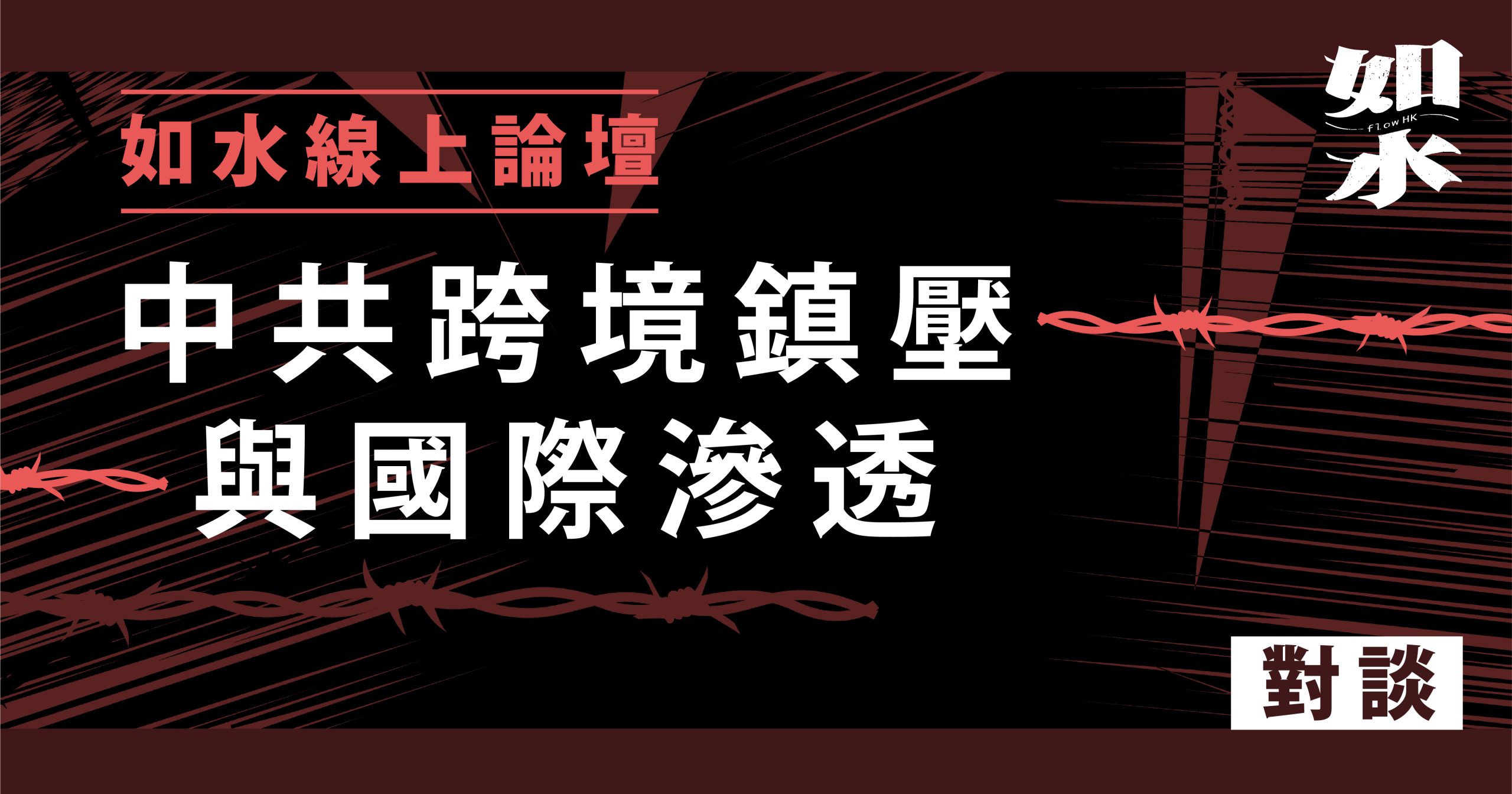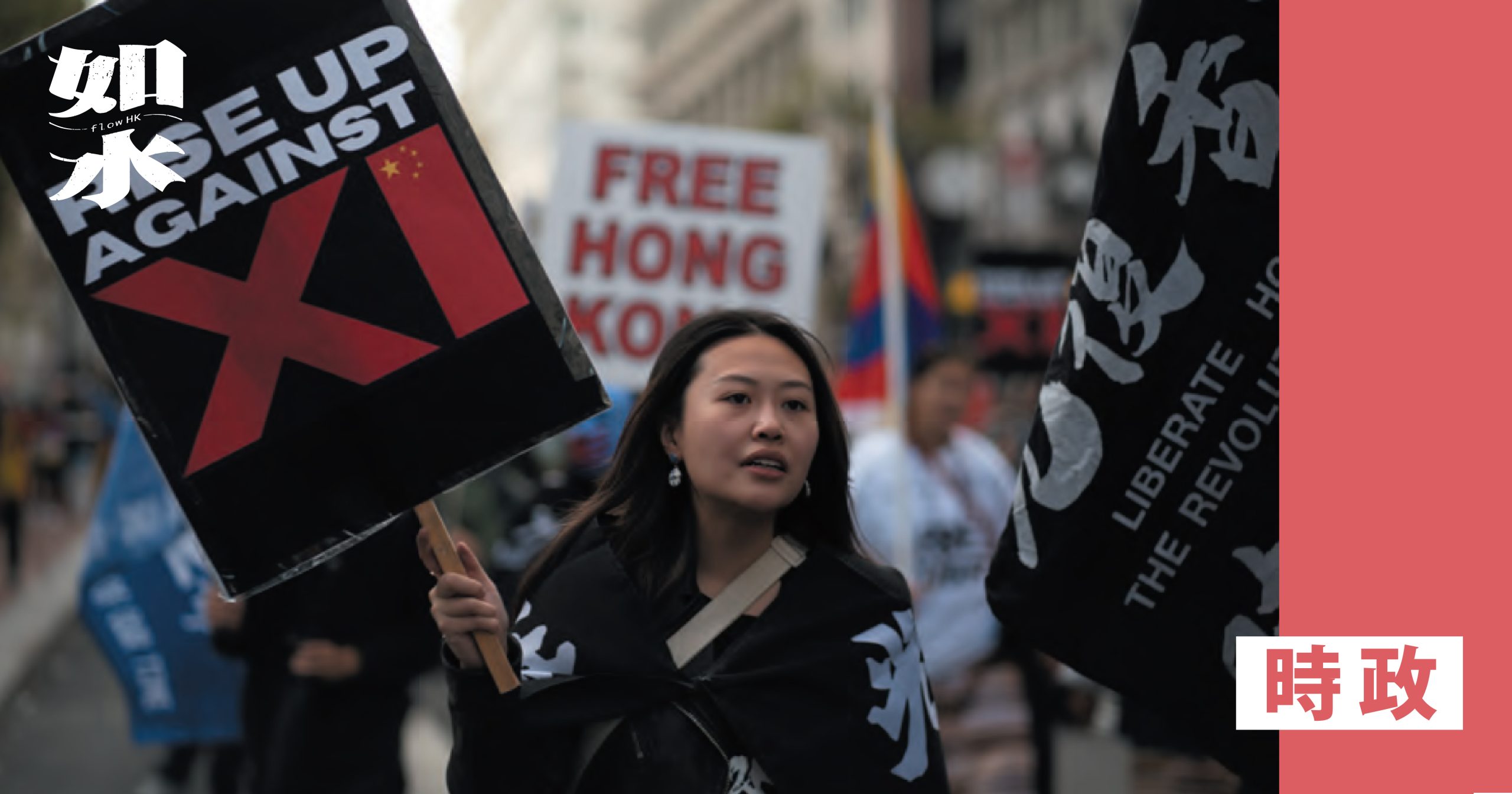5 Reflections on Hong Kong in the International Context

I had to think pretty hard about whether to accept the invitation to write this piece. I mean, I’m not from Hong Kong. I haven’t had to give up my home, or disown my family. I haven’t had to suffer the trauma of trying to latch onto half-baked lifeboat” schemes in order to live some semblance of a normal life. There’s a huge experiential gap between us. So I really can’t write about “the diaspora”(whatever that means) with any authority. So, big upfront disclaimer: I make no claim to expertise about what you’re going through.
One of the reasons it’s so important to say this is that there is – for a whole series of complex socio-cultural reasons – a constant struggle for agency within the Hong Kong liberation movement. This is further complicated by the presence of a number of foreigners like me, who are embedded in far-off legislatures, and who have had qualified success in using our political leverage to help with your cause. We enjoy a disproportionate platform in your movement.For some of us, this is discomfiting, and for others it is seductive.Whatever the reasons and corollaries, it is unquestionably true that there is a skew in representation. I’ll talk about this more a little later, but mention it here to underline that these thoughts are offered from an outsider ’s perspective. They might be useful to somebody. If they’re not, then they might make good kindling for the fire.
So, heavy caveats out of the way, permit me a brief explanation of why I have taken an interest in your city. I’ve worked on human rights related issues in China since about 2009, and pretty closely with some of the key pro-Hong Kong voices in the UK since about that time. But my core motivation for taking things up more dedicatedly in 2019 was ideological. It has been clear to many of us for some years that China’s rise presents a major challenge to the rules-based and human rights systems. It has been equally clear that Hong Kong is – or more accurately, was – the fault-line between the existing system: one which broadly reflects the overarching values of the liberal democratic order, and one which reflects a different set of values which the PRC under Xi Jinping would seek to impose. That’s why I came to the issue more dedicatedly in 2019 -the threat seemed imminent and the need for a response urgent.
Things have changed, though. While the ideological commitments remain, they have gradually given way to a deeper motivation -one rooted in friendship, and an affinity for place and people. It’s a conviction which has deepened since the passing of the National Security Law, which has stolen a number of friends, incarcerated them, and mercilessly crushed their futures. This has led me to follow developments in Hong Kong ever more closely, and to attempt to find ways of pushing forward political initiatives, as well as attempting to help some Hongkongers who have ended up in the UK. So there you have it: a brief apologia for banging on about a city I barely know, but one that nevertheless holds a special place in my life.
Being at the heart of relevant political ventures in the UK offers a certain perspective. Precisely because the Hong Kong struggle is not a personal cause, I suppose it’s easier to frame the issue in the context of the many other geopolitical issues vying for parliamentary attention. MPs are constantly lobbied to take up various causes. Afghanistan, Xinjiang, Ukraine, Tigray, Myanmar. The list goes on. Some Beijing-friendly politicians in the UK bemoan that too much attention is given to Hong Kong and that the political energy put into focusing on the city’s demise is totally disproportionate to the severity of what is happening there. I think this point of view is short-sighted, but the argument has some force. It doesn’t take a huge leap of empathy to understand how people might look at massacres in, say, Tigray or Northern Nigeria, and argue that, however bad things are in Hong Kong, they haven’t reached the level of atrocity.
Following this line of thought, the pro-democracy movement in Hong Kong has been outstandingly successful – enjoying a high level of political attention despite various catastrophes elsewhere in the world competing for the spotlight. At risk of sounding a bit brutal, though, this isn’t entirely – or even mainly – due to the efficacy of the political movement. I think it owes at least as much to the global dispersion of Hongkongers among various elites. It has been quite moving to observe Hongkongers abroad using their hard-won influence to turn the attention of their colleagues and wider public towards their home.
The truth is that, even with raised awareness, the movement (in my view) isn’t reaching its potential. There are many reasons for this. Here are a few, as I see them (with apologies for listing):
First: we don’t know what you want. This criticism is a bit flippant and unfair, so bear with me. Foreign legislators really don’t know much about developments in Hong Kong . With very few exceptions, if they sound even halfway knowledgeable, it’s because someone else wrote their speech. Broadly speaking, they know that
Hongkongers are not happy about what has happened, but they are much less clear of what the “movement” would like to be done about it. I put movement in heavy inverted commas here because it’s a pretty nebulous concept and not terribly useful for addressing this particular problem. The “movement” has no entry criteria, there’s no central decision-making authority, and no mandate. So appealing to the “movement” to solve issues around the clarity of your demands cannot succeed, except through consensus-based reception, which has its own issues. As with any democratic polity, it ’s unreasonable to expect some kind of homogeneity of opinion within the Hong Kong diaspora. Yet clarity is needed to orientate the advocacy of foreign politicians. This presents something of a paradox to those who would like to see self-determination in Hong Kong: how do you respect political and strategic diversity within the diaspora while making the most of the limited political energy available to your cause? To my mind, there ought to be an effort to arrive at some consensus-based demands, rooted in holding China accountable, but that’s for others to say.
Second: division is normal. But it ’s your enemy. I have never worked on a campaign that has been free from division. People don’t agree on strategy, they have institutions to protect, and get territorial. Some people like holding the microphone a bit too much, some get jealous, etc etc. Disappointing, yes, but when you throw high emotions, trauma, and inexperience into the mix, it’s unavoidable. Going where angels might fear to tread, I see quite a lot of it in the Hong Kong movement. Overclaiming, protagonism, counter-briefing, gossip, and everything else that goes along with it. Most of the time, people doing this sort of thing seek to justify their actions with a superficially noble goal. Take it from me, if you hear negative briefing about someone else in any movement, it is very rarely motivated by concern for the cause, and nearly always motivated by something else – usually the vulnerability of the individual doing it. The reason it is worth raising here is because this kind of thing does nothing to push the cause forward. It undermines unity, confuses politicians, and divides your base. You can always tell a seasoned campaigner by their effort to affirm where they can and refuse to engage in this sort of thing. Truman apparently said, “it’s amazing what you can accomplish if you don’t care who gets the credit ”. I think there are important lessons here for every campaign, especially diasporic ones.
Third: representation is a continuing issue. Simply put, movements need figureheads. As I wrote in a (now deleted) Apple Daily piece about two years ago, the vernacular of international advocacy is modeled on diplomacy. Without a mandate and figurehead it ’s really very difficult to make headway. The movement has tried to solve this in various ways, and has some exceptionally talented protagonists: Nathan, Chung Ching, Joey, Ray, and many others. But there’s still a conceptual gap between activists and mandated representatives. I don’t have a solution for this. And it certainly won’t be solved by a parliament in exile, which seems to me a self-defeating proposition purely because it will never enjoy the necessary level of legitimacy. Some creative person or institution could attempt to address the problem of representation by attempting to develop consensus around some new demands. A consensus-building exercise here would help to offer a kind of issues-based legitimacy, but, again, that’s for someone else.
Fourth: cultural differentialism and white bias in the media as a barrier to entry. Extending the agency point I referred to earlier: it ’s actually very difficult to platform Hongkongers. Behind the scenes, a lot of work goes on to direct journalists, politicians and others towards Hongkonger advocates. A couple of things I’ve noticed: first, the media generally lacks the knowledge to understand if a Hong Kong voice will turn out to be a liability for them (their primary concern is avoiding embarrassment) so they tend to come to people like me first. Second, the mechanics of media production almost requires a triangulation point. “You’re my China guy”is something I get a lot. Ridiculous, isn’t it? It’s almost as if there is a latent fear of going direct to Hongkongers – as if only people vouched for by a white usher can be relied upon. As much as those in the media like to burnish their credentials around fairness, representation, and agency, the truth behind the scenes looks very different to me.
More importantly though, I’ve noticed that there is an inherent reticence, or unwillingness, among the Hong Kong diaspora to ask for help. Demanding help from foriegn governments or institutions seems to be something which does not come naturally. This has been especially pronounced with the BN(O) scheme. Some within the community seem to believe that access to the scheme will be withdrawn if the community is seen to be causing trouble (an emphatically false proposition). It’s like the diaspora feels that it is living on borrowed time – in someone else’s land where the guillotine might descend at any moment. I’ve called the phenomenon of not wanting to ask for help “ cultural differentialism” in the title of this section because I believe that the trait itself might owe something to Hong Kong being a former colony. I know I’m on risky ground here, but I have been consistently frustrated by the unwillingness of the movement to demand the fulfillment of what was promised by the UK and others. I may be misreading this, but it’s almost as if Hongkongers don’t believe they deserve help – as if there’s an ingrained predisposition to accept what is given, and not to ask for more.
This is frustrating because the UK made promises to Hong Kong, too, and we haven’t fulfilled them. If I were you, this would enrage me, but raging at the betrayal of the UK does not seem to be an option for Hongkogners , diaspora or not. It angers me that the UK has also embraced this dynamic, adopting a very reminiscent paternalistic mindset towards you, which assumes that throwing you a bone through the BN(O) scheme will mean that you won’t be angry about our failure to keep our treaty promises, which were too weak anyway (also the UK’s fault). I’ve also noticed that generally Hongkongers are much more tolerant of my bullshit than others. It is fair to call this “differentialism”? Maybe not, but there’s something about this general phenomenon which is holding you back, allowing others to hog your platforms, and letting world governments off the hook.
Fifth: transformation through integration? Most of the thoughts above are relevant to a traditional style diaspora movement, so the whole analysis may be misplaced or at least out of date. I’ve noticed that, as the campaign has inevitably lost energy, attention has turned towards simply getting on with your lives. What’s interesting here, though, is that this doesn’t seem to be an individualistic turn, or a way of forgetting the struggle for Hong Kong. Rather some are seeing integration as a tool for liberation. The UK in 2022 has more Hongkonger teachers, engineers, doctors, nurses than ever before. The Hong Kong diaspora in the UK is likely to overtake the Chinese diaspora in terms of numbers. This presents a real opportunity to craft a diaspora identity which is rooted in your way of life, but so embedded in the institutions and life of this country that it will eventually tilt the UK as a whole towards the preservation and eventual liberation of your city. And yes, this means that Hongkongers need to join political parties in the UK and get elected. As citizens of another country, representation is a right to which you are entitled. Nothing would signal more clearly that you have taken rightful ownership of your adopted citizenship, however temporarily it might be held.
A final note: please have patience with us over the coming years. We don’t know enough about your way of life, we don’t grasp the complexities of the political situation under which you have lived, and few of us can empathize with the sacrifices you have had to make. There may be some rocky moments over the coming years as both you and the societies in which you have settled come to terms with this huge upheaval. Mistakes will be made, but, we will emerge from it stronger together, and eventually, Hong Kong will be freed.




